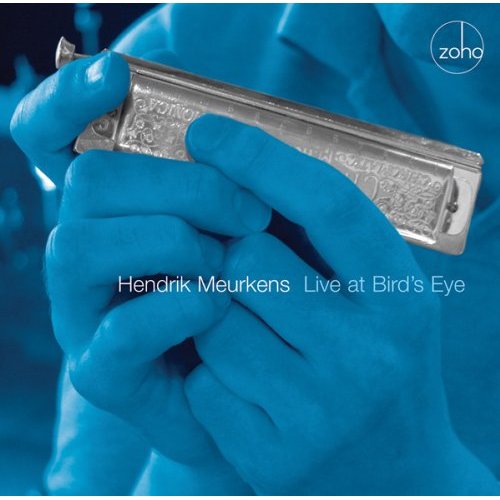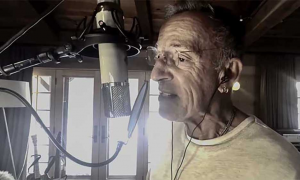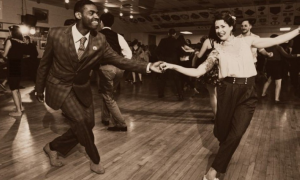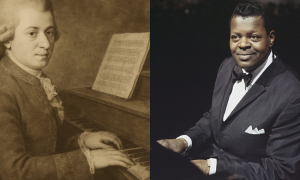Home » Jazz Articles » Opinion » Jazz, Politics, Edward Kennedy and the Ghosts of Richard...
Jazz, Politics, Edward Kennedy and the Ghosts of Richard Nixon: Our American Dialogue and the Hatfields and McCoys
The Antidote
My neighbor sometimes sticks a sign in his nice front lawn during the political season, but in the 18 years we've lived across the street from each other, we've never really discussed politics. The vicissitudes of our two versions of self-employment, or the cost of supporting his two collegiate kids in a collapsed national economy, yes. Sports, jazz, literature, yes. Politics, almost never. It doesn't come up in conversation. He's never asked me how I will vote (or have voted) in an election, or what my party affiliation is, and I've never asked him. We both have a pretty good idea of what the other's political views are, which are occasionally contrary to our own. But if he has something he wants to talk about, I just let him talk about it. If what he has to say has a political angle, that isn't what is important—what is important is that it concerns him. So I listen. He isn't a member of a class or category to me, he's a friend.
He told me a story about his college days that says more about his politics than any lawn sign. He says he and a friend made a pilgrimage to upstate New York to see a writer they both admired, one I also admire greatly, the novelist Frederick Exley. They found him in a local Watertown bar and had drinks with him—though they were probably out-quaffed two drinks to each one of theirs. Published in 1968 and subtitled A Fictional Memoir, Exley's A Fan's Notes is one of the most radical novels written in the 20th century. Likely begun when he was institutionalized in Harlem Valley State Hospital in Dover, New York, it is brilliantly written prose that combines self-deprecating hilarity with the chilling truths of self-discovery, warts, bunions, calluses, contusions and all. Though it bears a passing resemblance to Ken Kesey's great One Flew Over the Cuckoo's Nest, published a few years earlier, it bears a greater one to Jack Kerouac's On the Road. Exley's novel dives so deep, and in such a distinctive and personal voice, that a reader cannot escape the knowledge of what it is to be obsessed—with football heroes, greatness, manic and maniacal creativity, the next sweet breath of life. The politics of locking up Frederick Exley in a madhouse and treating him like a prisoner of some spiritual war, bombarding this soul with electro-convulsive shock, goes beyond any humane version of politics into the deathly realm of enforced will. It is useful to be reminded often of why Thomas Jefferson wrote in a letter to his friend Benjamin Rush, defending himself against some ignorant bigots who opposed his election, that ..."I have sworn upon the altar of god eternal hostility against every form of tyranny over the mind of man."
I learn a lot by talking to my neighbor. The topic is rarely as important as the fact that we are talking and listening to each other. Displaying a little friendly common sense and genuine concern for another human being go beyond any political party or category of social interaction. It is simply friendship.
So my plan for the summer is to make some new friends, and encourage people I know to do the same. I want to meet and talk to and befriend Liberals, Conservatives, Libertarians, Independents, Democrats, Republicans, Union Members, Non-Union Members, Gays, Straights, Socialists, Capitalists, Lance Armstrong Fans, Lance Armstrong Detractors...
If I meet someone who has raised his daughter to be a good Liberal who's since turned out to be a damned Neo-Con—and who asks my advice—I will first of all tell him that I don't really believe in giving advice, because he knows much more about his own life than I ever will, and is better off consulting with himself. If he insists on asking me what I think, I'll tell him the same thing I would if he said he'd raised his daughter to be a good Conservative who then turned out to be a flaming Liberal. I'd say to talk to her, i.e., let her talk while you listen; don't interrupt her, challenge her, or in any way argue with her. Hear her out. No rebuttals. Thank her for her viewpoints and taking the time to talk. Then move on. If she wants your advice, she'll ask for it.
If I meet a woman who solicits my thoughts on a son she raised to be a good Christian, and he's turned out to be an apostate, an atheist covered in garish tattoos and metal studs, the advice will be the same. An uncle who wants his gay daughter to move out of the house, or a gay niece who wants to run away or move out of her father's house, the same advice. A mother who can't stand her liberal employee's politics, or a father who can't abide his boss' conservative politics, the same advice.
Most of all, I plan to try to take my own advice.
I also plan to take Howard Beale's advice and turn off my television more often, go for lots of walks and meet as many new neighbors as I can. I know quite a few of them, but I can't believe how many of them I've never met. Plus, a few people have moved away and new ones have moved in, and I want to meet them. In addition to that, I plan to listen to a bunch of Duke Ellington recordings I've not heard before, plus listen again to the all the ones I have. I want to check YouTube for videos of the Duke that have been posted since the last time I checked. I think I'll try giving Ken Burns' Jazz another chance. I plan to listen to as many new and different recordings as I can find, either ones I've never heard of, ones I've heard of and am curious about, or ones I discarded without giving a real chance. If I hear anything I really like, I plan to write about it and spread the word. Music has healing power. It brings people closer, soothes wounds, bridges divides.
The last thing I want to do is print out a copy of what Richard Nixon and Edward Kennedy Ellington said to each other unscripted (except for Nixon's citation) on stage that evening, when Duke received the Presidential Medal of Freedom, and file it under "just when you think you know somebody," then stick it up on the wall over my desk where I can see it every day:
NIXON:
"For the first time during this administration, I have the honor of presenting the Presidential Medal of Freedom. I think it is most appropriate that that medal be presented to Duke Ellington.
"When we think of freedom, we think of many things. But Duke Ellington is one who has carried the message of freedom to all the nations of the world through music, through understanding, understanding that reaches over all national boundaries and over all the boundaries of prejudice and over all boundaries of language.
"Because he has an unusual gift, a gift that he has shared with us, his own fellow citizens, and with the citizens of the world, we believe that this citation fits him particularly well. I will read it to you.
"'The President of the United States of America awards this Presidential Medal of Freedom to Edward Kennedy Ellington. Edward Kennedy Ellington, pianist, composer, and orchestra leader, has long enhanced American music with his unique style, his intelligence, his impeccable taste. For more than 40 years he has helped to expand the frontiers of jazz, while at the same time retaining in his music the individuality and freedom of expression that are the soul of jazz. In the royalty of American music, no man swings more or stands higher than the Duke.'"
ELLINGTON:
"Thank you very much, Mr. President. Thank you, ladies and gentlemen.
"This is the Presidential Medal of Freedom. And the word 'freedom' is one, coincidentally, that we are using at the moment in our Sacred Concert.
"And, of course, we speak of freedom of expression and we speak of freedom generally as being something very sweet and fat and things like that. In the end when we get down to the payoff, what we actually say is that we would like very much to mention the four major freedoms that my friend and writing-and-arranging composer, Billy Strayhorn, lived by and enjoyed.
"That was freedom from hate, unconditionally; freedom from self-pity; freedom from fear of possibly doing something that may help someone else more than it would him; and freedom from the kind of pride that could make a man feel that he is better than his brother."
Tags
PREVIOUS / NEXT
Support All About Jazz
 All About Jazz has been a pillar of jazz since 1995, championing it as an art form and, more importantly, supporting the musicians who make it. Our enduring commitment has made "AAJ" one of the most culturally important websites of its kind, read by hundreds of thousands of fans, musicians and industry figures every month.
All About Jazz has been a pillar of jazz since 1995, championing it as an art form and, more importantly, supporting the musicians who make it. Our enduring commitment has made "AAJ" one of the most culturally important websites of its kind, read by hundreds of thousands of fans, musicians and industry figures every month.
























